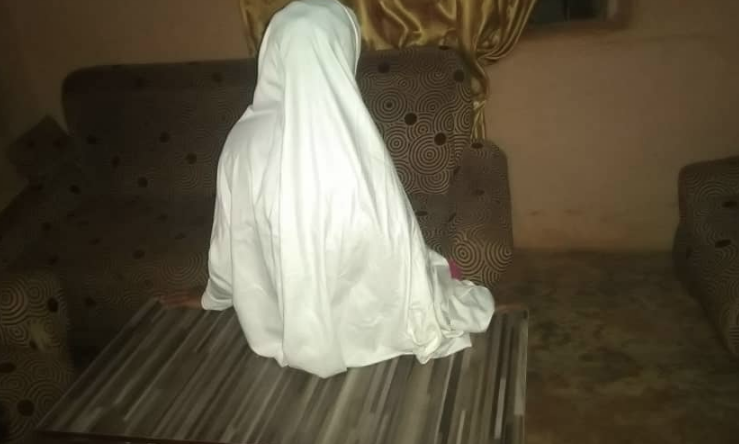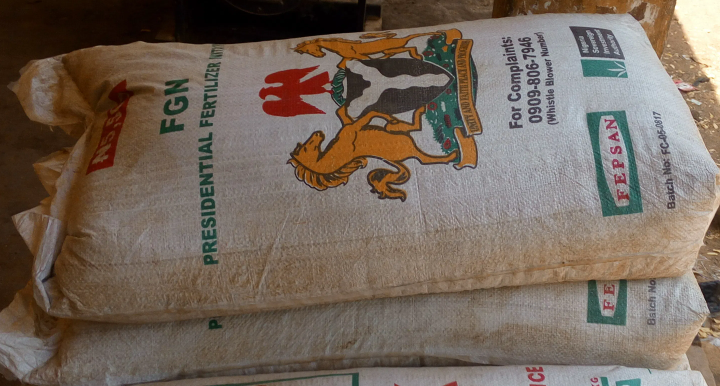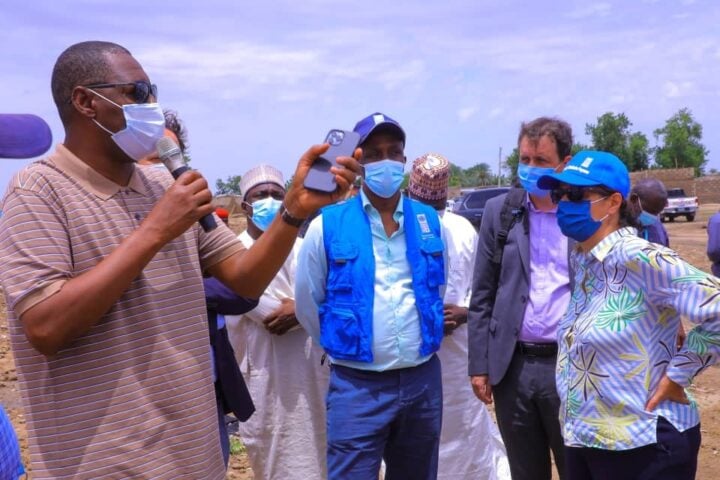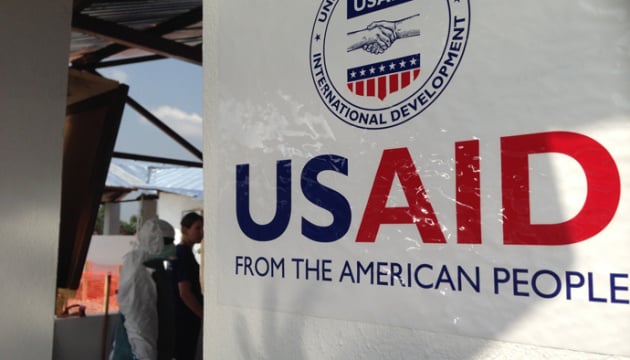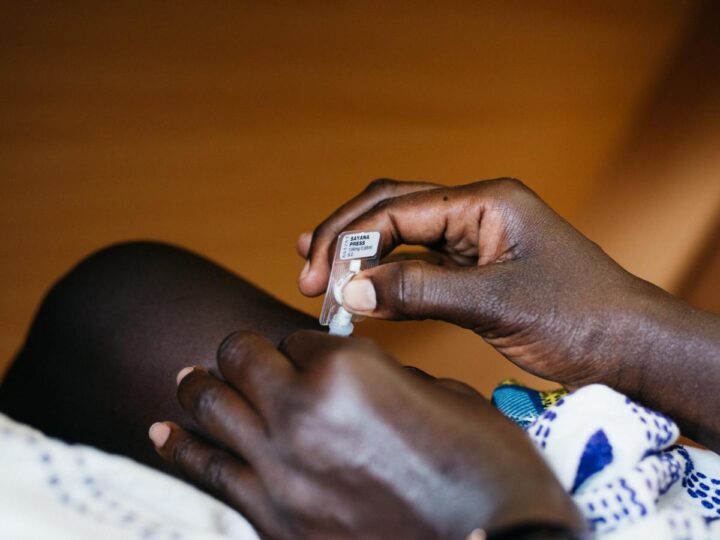The story of Iniobong Umoren, a Nigerian graduate who was raped and buried in a shallow grave, sent shock waves across the country, more so because she was entrapped by the offer of a job. Iniobong’s ordeal is one of the many heart-wrenching cases of sexual and gender-based violence (SGBV) in the country.
Several non-governmental organisations are in the trenches, daily, fighting the scourge of SGBV, and one of those at the forefront is BraveHeart Initiative for Youth & Women (BHI), an organisation dedicated to sensitising and empowering women and young people in the areas of SGBV, sexual and reproductive health, as well as gender and human rights.
Based in Edo state, BHI offers health services, awareness programmes, media advocacy, and legal representation and socioeconomic support to victims and survivors of SGBV.
In 2019, BraveHeart facilitated justice for Gift Alonge – a 17-year-old girl who was a victim of incestuous rape. Gift Alonge’s case took the lives of two of BraveHeart Initiative’s staff – Promise Ezekiel and Rhoda Braimoh – who died in a road accident. Despite the traumatic event, the team pursued justice in the case and won. Jacob Alonge, the perpetrator, was tried, found guilty, convicted and sentenced to 21 years imprisonment.
Advertisement
Between 2019 and June 2021, the non-governmental organisation has intervened in about 129 cases of SGBV. The organisation is currently intervening in 39 cases of GBV, with 28 of these cases related to sexual violence. While 14 cases are still being investigated, five perpetrators have been convicted of their crimes in 2021.
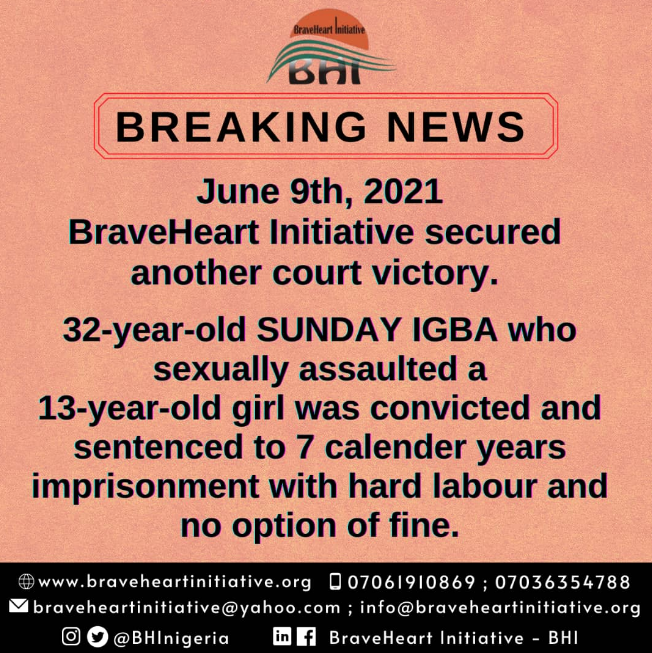
Since 2010, the non-governmental body has recorded convictions of 22 sexual offenders.
Advertisement
The cases include that of a 56-year-old man who was convicted for defiling a 10-year-old girl at Ososo community, and a 23-year-old man jailed for attempting to rape a 53-year-old woman at Ibibio community.
Priscilla Usiobaifo, founder and executive director of BHI, told TheCable that the lack of education on fundamental human rights is one of the major reasons SGBV continues to thrive in Edo and the country at large.
Police statistics show that rape/defilement is a common crime in Edo, but most survivors do not report sexual abuse. Stigmatisation and secondary victimisation are among the reasons SGBV is under-reported in the state.
“Education gives empowerment, not just education as in literacy but you being informed about your rights,” she told TheCable.
Advertisement
“Information is critical. I tell people that information is a matter of survival. The information you give to a person may be the reason the person is alive. It is a life and death issue.”
Partnership with police, hospitals
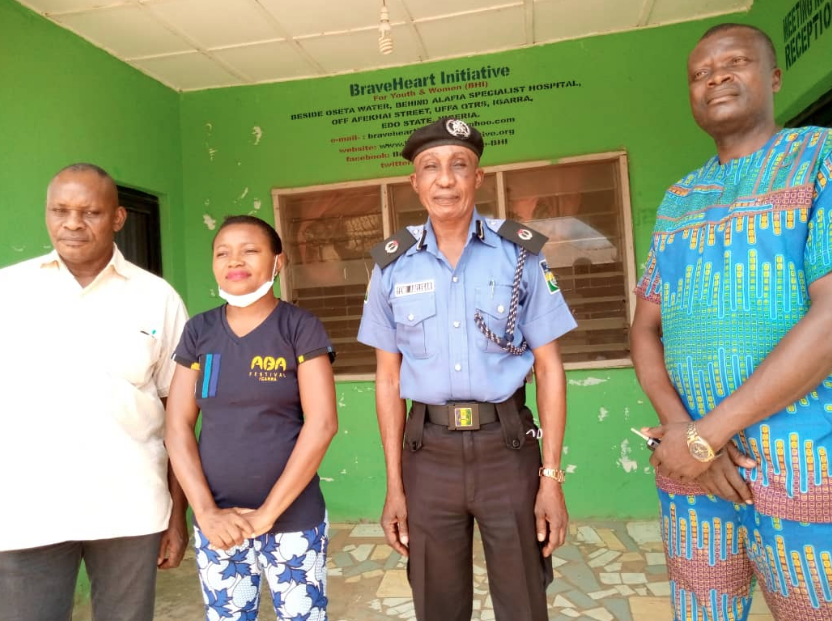
To help victims of SGBV get justice and find closure, BHI goes the extra length of ensuring that the prosecution of abusers is not stalled or scuttled.
Usiobaifo says BHI has sources and contacts in the community and within government institutions who keep the NGO in the loop of everything concerning a case of interest.
Advertisement
“We have built a community surveillance system in an institutional manner such that if today you try to cover up a case, our surveillance team member will inform me,” Usiobaifo told TheCable.
The Edo police command has also partnered with BraveHeart on the investigation of GBV and SGBV cases, resulting in a situation where cases are promptly treated and charged to court.
Advertisement
BHI also facilitates medical services — including medical investigations, preventive care and treatment services — for survivors through its partnership with the Igarra General Hospital, Alafia Specialist Clinic and Primary Health Centres within Akoko-Edo LGA of Edo state.
The organisation partners with the Edo State Sexual Assault Referral Centre (Vivian SARC) for medical analysis and treatment.
Advertisement
It also provides victims and survivors with post-exposure prophylaxis (PEP) to prevent sexually transmitted infections, as well as emergency contraceptives to prevent unplanned pregnancies.
Sensitisation programmes on SGBV
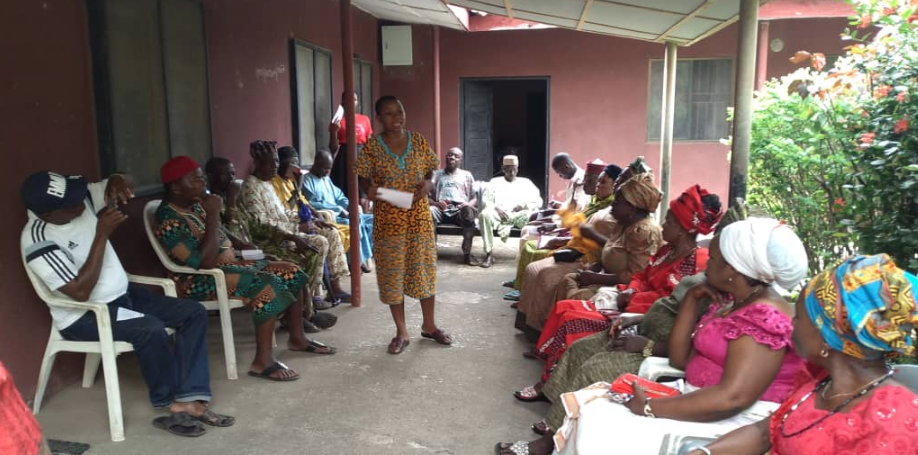
Advertisement
At the height of the COVID-19 lockdown, domestic abuse was on the rise, as women and girls were trapped with their abusers. BHI was one of the organisations which took action through sensitisation and comprehensive response.
In November 2020, with funding from the Open Society Initiative for West Africa (OSIWA), BHI began the implementation of a project that helped increase attention on SGBV.
“In the first three months of COVID-19, our cases were soaring on a daily basis. OSIWA started by sending us PPE,” Usiobaifo said.
“We decided to designate community dialogues that would hold in palaces because of the political will of the community leaders.”
Courtesy of the OSIWA grant, SGBV survivors received intervention through free trauma counselling, medical assistance and legal aid.
BHI has also received support from UNFPA, MacArthur Foundation, Ford Foundation, IWHC, UN Women, Hadis Foundation, Girls Power Initiative, Centre for Democracy and Development, Community Life Project, JHUCCP/NURHI2 and many others.
Mentoring of young leaders against SGBV in rural communities
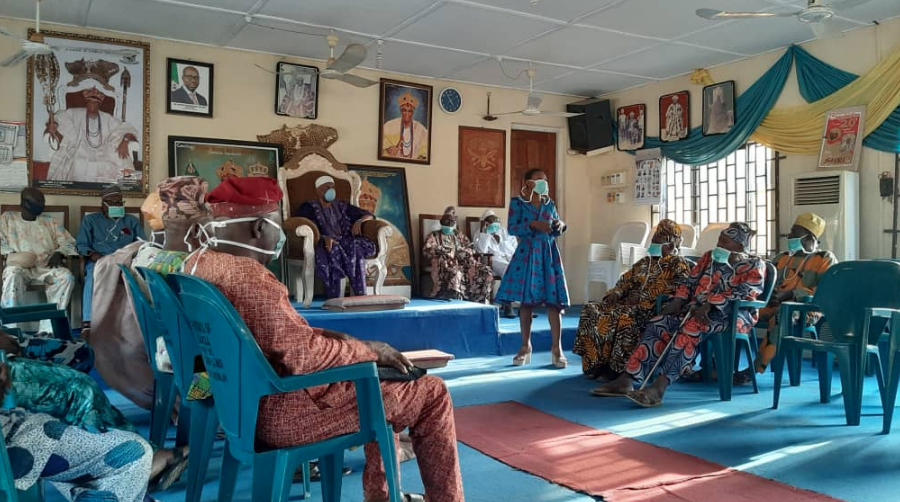
In a bid to spread the gospel and achieve more impact, BHI is training female leaders in rural communities to become ambassadors against SGBV.
“We got a grant from Ford Foundation. It is titled ‘Young Women Leadership Mentoring Project’. They wanted me to replicate myself. They gave us money to raise leaders within our community,” Usiobaifo said.
“We started in October 2020 with 10 communities in Akoko-Edo LGA of Edo state. In each of these communities, we picked three young women, age 18-25, and put them through mentoring sessions on leadership.
“The beauty of these projects is that these mentees in their various communities have become ambassadors against SGBV.”
BHI also conducts strategic identification and mentoring of community advocates and champions to amplify voices on SGBV and promote the practice of feminist principles as a means of addressing patriarchy and ending gender inequalities.
Through its Sexuality Education, Empowerment and Development (SEED) program, the organisation mentors adolescent girls in rural communities.
“The programme has helped to break the culture of silence and provide a safe place for children and women that are sexually assaulted,” she said.
‘Edo state should pass VAPP Act’
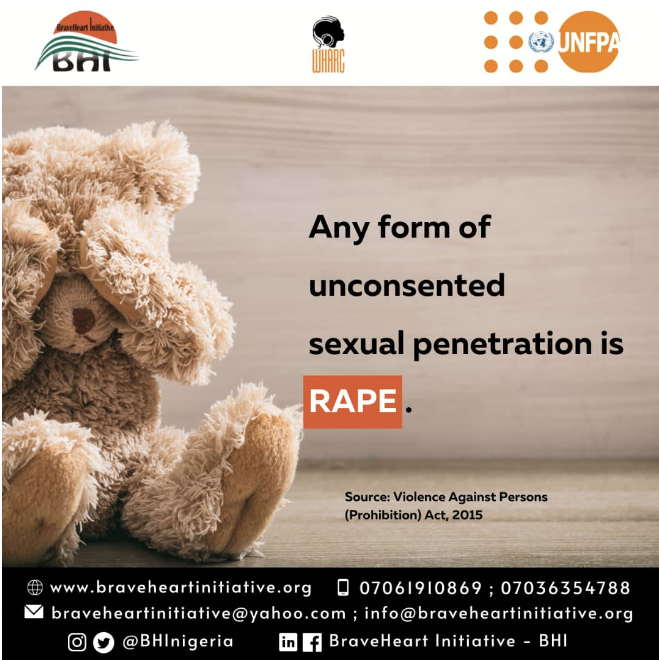
According to Usiobaifo, one of the obstacles faced by the organisation in its efforts to fight SGBV, particularly in Edo state, is the government’s reluctance to provide an enabling environment, in terms of the required law to prosecute offenders.
She says the government must stop making political statements and follow through with concrete actions. She called for improved budgetary allocation and release of funds for SGBV-related programmes in Edo.
She also urged the state government to hasten the passage of the revised Edo criminal code law and the Violence Against Persons (Prohibition) Act (VAPP) to aid the prosecution of offenders.
“The two things the government owe me are the revised criminal code law and the VAPP law,” she said.
“Our Edo state VAPP law is very comprehensive. These two documents are before the state house of assembly, with the VAPP awaiting the governor’s assent. We appeal to the lawmakers and the governor to work on it so that police officers and judicial staff can be trained on it and use it.”
Usiobaifo also called for the “urgent review” of the Edo State Child Rights Law to better protect children.
Add a comment

